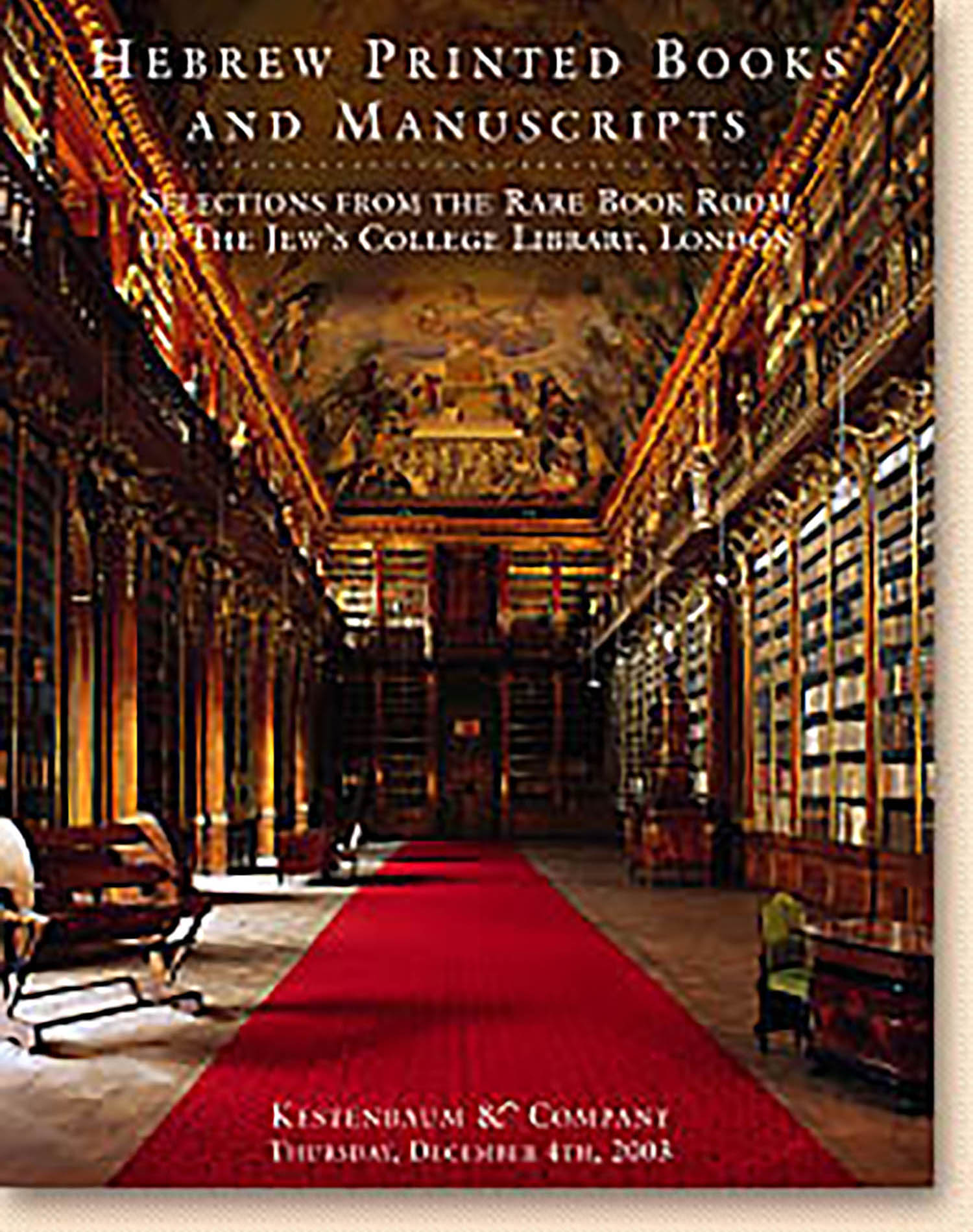Discorso circa il stato de gl' Hebrei, et in particolar dimoranti nell'inclita Citt`a di Venetia (“Discourse on the Jews of Venice”)

AUCTION 21 |
Thursday, December 04th,
2003 at 1:00
Kestenbaum & Company Holds Inaugural Auction of Hebrew Printed Books & Manuscripts at Their New Galleries
Lot 162
LUZZATTO, SIMONE
Discorso circa il stato de gl' Hebrei, et in particolar dimoranti nell'inclita Citt`a di Venetia (“Discourse on the Jews of Venice”)
Venice: Gioanne Calleoni 1638
Est: $800 - $1,200
PRICE REALIZED $2,000
Simone (Simcha) Luzzatto (1583-1663) was appointed senior Rabbi of Venice following the death of Leone Modena. Among his responsa was one (no longer preserved) which permitted travel by gondola in Venice on the Sabbath. EJ, Vol. XI, cols. 607-608.
It is believed that Luzzatto's Discorso was spurred by the threat of the imminent expulsion of the Jews of Venice. Luzzatto devoted the first part of the Discorso to a demonstration of the ecomonic utility of the Jews of Venice. Perforce, he defends moneylending, which the Venetian Senate had required the Jews to engage in. In defense of the Jews, the author argues that due to their political quietism since the desctruction of their state, they pose no threat to the security of the Venetian Republic. Prof. Bernard Septimus has argued that Luzzatto did not truly subscribe to these quietistic beliefs but merely adopted this pose for apologetic purposes. His true belief would have been much closer to that of Spinoza who expressed the thought that one day the Jews would reestablish their state. See Benjamin Ravid, “Moneylending in Seventeenth Century Jewish Vernacular Apologetica,” and Bernard Septimus, “Biblical Religion and Political Rationality in Simone Luzzatto, Maimonides and Spinoza” in: Twersky and Septimus eds., Jewish Thought in the Seventeenth Century (Cambridge, MA, 1987), pp. 257-275; 399-433.
Evidently Christian resentment of Venetian Jewish moneylenders was festering for some time. In 1596, William Shakespeare issued The Merchant of Venice, whose villainous central character Shylock, a Jewish usurer, has continued to serve antisemites to the present day.
